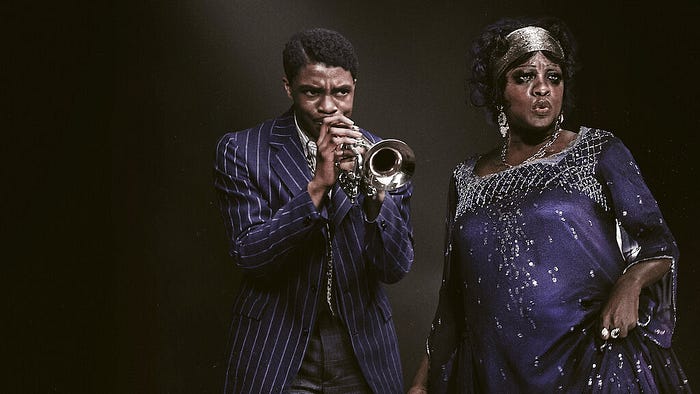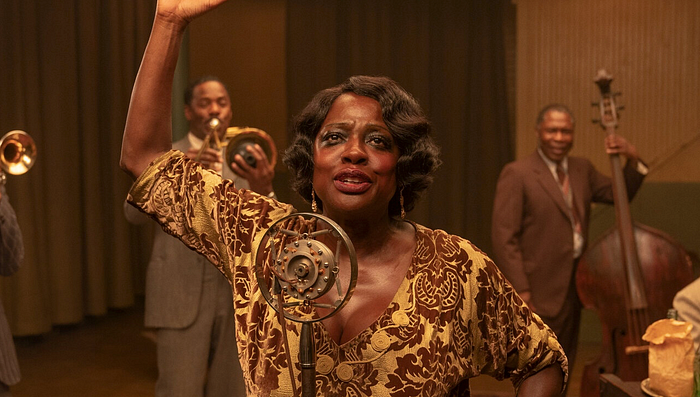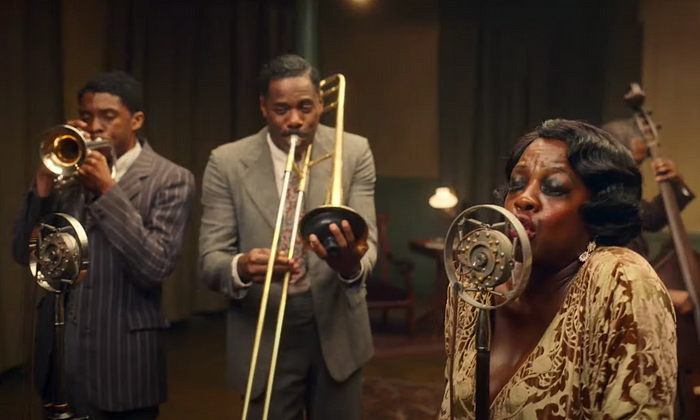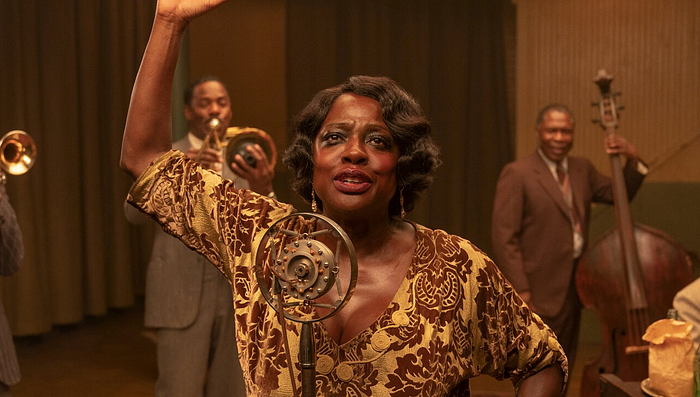The word, difficult has long since been attached to Black female entertainers, along with it, the assumption that they should be “grateful” for the opportunities they have instead of crediting their talent, and God-given abilities. Not Ma Rainey

Netflix’s “Ma Rainey’s Black Bottom,” stings with lessons for us, by us, They’re painful, and devastating, and surprising, and enraging — and typical.
Fittingly using the blues as a catalyst to tell the story, at first glance, the film adaptation of August Wilson’s classic play positions Ma Rainey as a diva with an attitude. Nowadays, they call it difficult. A difficult Black woman — with a longsuffering white manager who just wants “the best” for her — that’s what some will gather from the film.

That gathering together of Blackness under a basic package with a bow, couldn’t be further from the truth of what August Wilson originally intended.
Ma Rainey was called the Mother of the Blues. Her protégé Bessie Smith, would reach unprecedented success, but it was on the heels of Rainey’s trailblazing.
In Chicago, 1927, Ma Rainey returned to record for Paramount Records. Her band, including Levee (played by Chadwick Boseman) arrived separately. Ma Rainey was 1 hour late.
When she arrived, she wanted a fan — it was hot. She wanted a Coke — three of them. She wanted her nephew, a young man with a speech impediment, to record the intro to her most famous song. After 8 takes, they finally nailed down the song — alas, the recording stopped unbeknownst.

In the shadow of her once protégé, with a new sound and advanced vocal agility now all the rage, Ma Rainey couldn’t adjust — and the new, interesting, swinging, Levee didn’t make things for her any easier.
Chadwick Boseman’s performance as Levee was visceral. He might not have known that it would be his last project, since he was prepping for the Black Panther sequel at the time. As a last project, Boseman’s portrayal of the musician who rode on a dream ultimately being taken away at the will of a white man; was breathtaking.
The film, like the play, tell a real story all too familiar then, and now, about Black exploitation in entertainment.

Ma Rainey’s leverage was her voice, she knew that. As long as she had something they wanted, they would give her what she wanted — even amidst a backdrop of resentment.
Who did she think she was? The nerve. The audacity. To demand what her white counterparts had — it was simply unheard of. But that’s who she was.
Viola Davis, in a now viral interview from 1–2 years ago, said that she was the equivalent of Meryl Streep, and yet, she still has to negotiate to get her worth at every point.

When Mo’Nique (who coincidentally played Ma Rainey in the HBO-produced Bessie Smith biopic) demanded the same from Netflix, ironically, she became a laughingstock. The word difficult was attached to the Academy Award-winning comedienne by a Black executive.
The parallels between Davis, Mo’Nique, and Rainey — in that vain are felt in the film.
Davis captures Ma Rainey’s angst perfectly. In every scene, she channels her own struggle with getting her worth and maintaining ownership over her talent; to infuse that experience into Ma Rainey’s wholeness.
Davis held nothing back. Her performance mirrors Ma Rainey’s toughness — a result of having to be.
Rainey’s difficultness comes to a head when she demands payment for her nephew who laid down the initial vocals as an intro to her “Black Bottom” song. There was to be a conflict between her, her manager, and the label head. That was, until they remembered, she hadn’t yet signed the waiver. Without the waiver, the label couldn’t release the music. She knew this.
“Soon as they get my voice down on one of them recording machines, then it just like I be some kind of whore and they roll over and put their pants on. They aint got no use for me then,” Davis’ Rainey says in one of the many truth scenes beautifully captured by director, George C. Wolfe.
The word, difficult has long since been attached to Black female entertainers, along with it, the assumption that they should be “grateful” for the opportunities they have instead of crediting their talent, and God-given abilities.
Not Ma Rainey.

Her voice was painful, sugary, and filled with the kind of truth that came with not just singing the blues but living the blues. She never got her due for modernizing the genre. Still, her legacy can be heard in Bessie, Billie, Aretha, and Mary.
The film also stars Coleman Domingo and Gylnn Turman — both of whom delivered incredible performances.
“Ma Rainey’s Black Bottom” is available for streaming on Netflix today. The film is directed by George C. Wolfe and executive produced by Denzel Washington.

